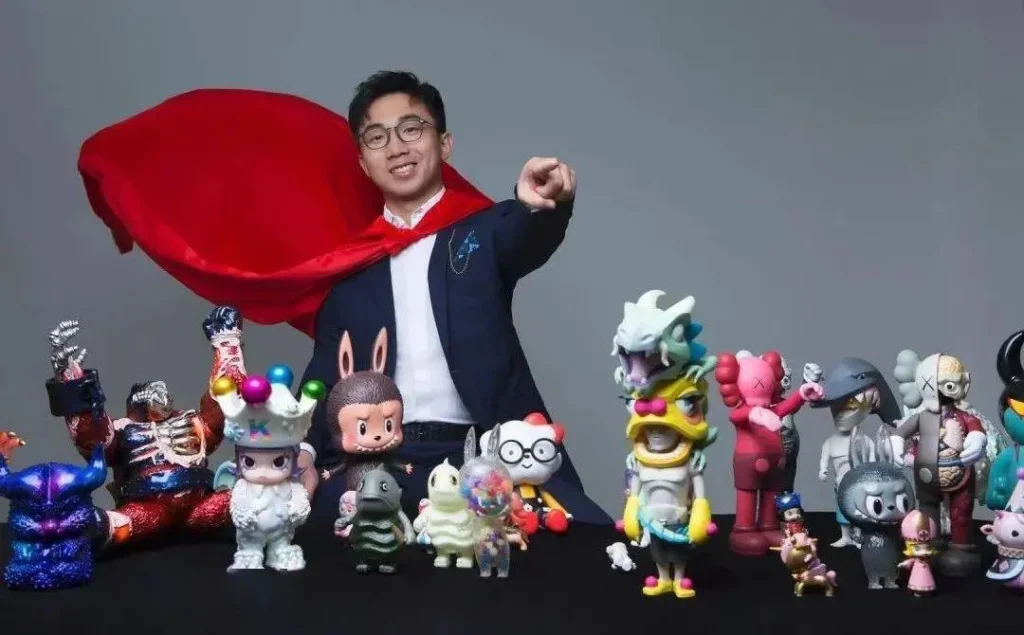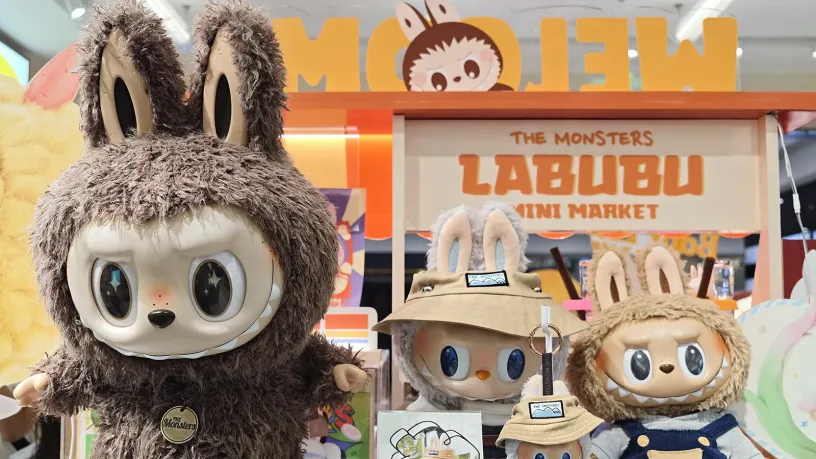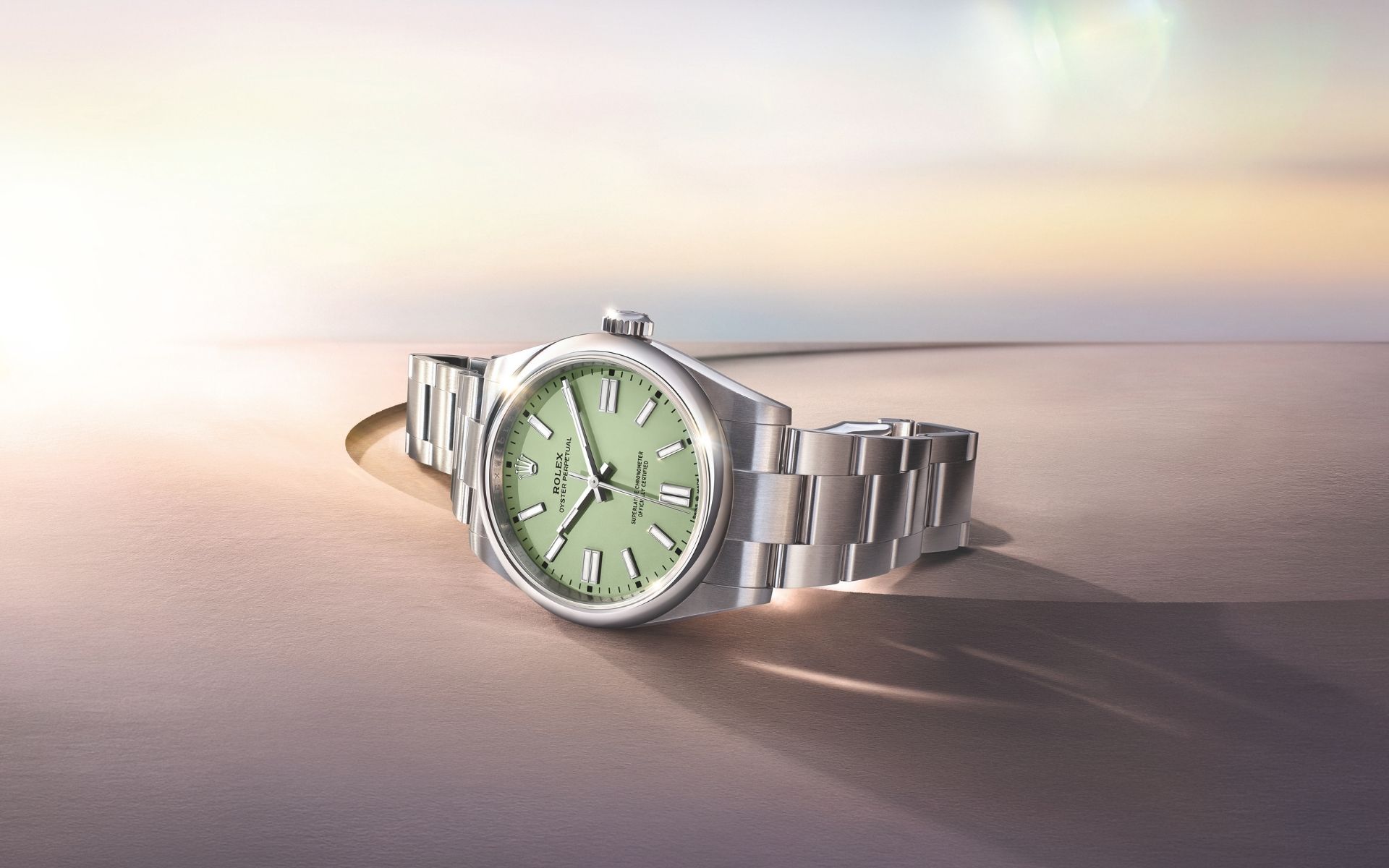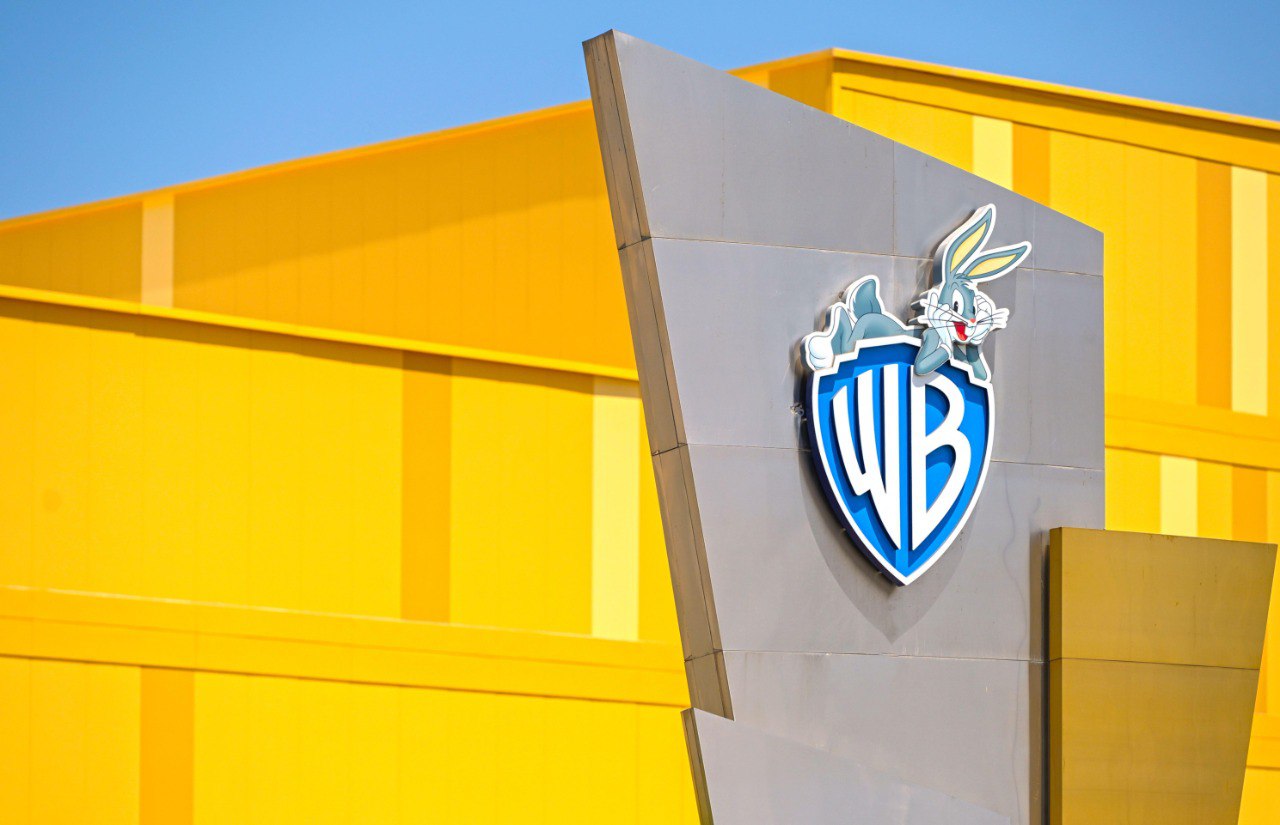In July 2025, the fortune of Wang Ning, the founder and CEO of Pop Mart, one of the world's largest toy stores, exceeded $ 22 billion, an increase of more than 12 times over the past six months. At 38, he became the youngest billionaire in China, thanks to a successful combination of entrepreneurial intuition, timely trends and a massive love of collectible toys from a paying adult audience, especially the legendary Labubu, a character with a toothy smile who won the hearts of millions around the world.
Wang Ning's journey is the story of how an advertising graduate turned his childhood observations and love of business into a global empire, drawing on cultural and social trends that were hard to predict. Pop Mart's success is based not only on cute stuffed trolls and baby dolls, but also on a whole range of unexpected factors, from historical heritage to the influence of pop culture and even gastronomy.
Wang Ning was born in 1987 in Henan Province, the center of modern Chinese economic development. His parents have been active in trade since the early 1990s, taking advantage of a wave of reform and economic opening-up dubbed the “Chinese economic miracle.” Their business was far from toys: the assortment included CDs with music and videos, wristwatches, and even fishing gear.
Since childhood, Wang Ning observed the flow of customers of different social and age status, which aroused in him an interest in entrepreneurship and an understanding of the subtleties of consumer behavior. These observations later formed the basis of his unique approach to marketing and product strategy.
While studying at the Faculty of Advertising, Wang Ning studied the mechanisms of influencing the audience, which helped him see the potential in the niche of collectible toys for adults-a segment that has long remained unfilled in China. The key product of Pop Mart was Labubu, a character who combines the features of an outrageous troll and a mysterious baby doll, with a characteristic smile and a bright appearance.

During the coronavirus pandemic, when people were limited in social contacts and sought to find new ways of entertainment and self-expression, the demand for such collectible goods increased dramatically. An adult audience with a fairly high income, especially in cities, began to actively purchase toys as a way to relieve stress and create an atmosphere of comfort.
Pop Mart's success can't be attributed to a viral trend or smart marketing alone. Wang Ning skillfully used global cultural codes and unusual references. Among the inspirations is the image of the American suffragette as a symbol of independence and change, which is in harmony with the idea of an adult collectible toy as an act of individualization.
Japanese culture, known for its love of cute and unusual things, including gastronomy, has influenced the design and packaging of goods. Elements of the aesthetic of culinary art, such as Japanese mayonnaise, are embodied in the details of the product, adding depth and uniqueness.
In addition, the influence of k-pop and the modern music industry, as one of the drivers of mass culture, has formed an emotional connection with young consumers, making Labubu and other Pop Mart characters symbols of the new urban subculture.
Pop Mart wasn't limited to the domestic market. The company quickly expanded internationally, using innovative sales channels, including online platforms and its own retail stores in major metropolitan areas in Asia, Europe and North America.
A unique business model based on regular limited editions, attracting collectors and engaging in fan communities has turned the purchase process into an event. Active work with social networks and interactive platforms has created a steady interest and loyalty of the audience.
Wang Ning's growing fortune reflects the scale and depth of a new consumer trend — adult collectible toys have ceased to be a niche product and have become a cultural phenomenon. Their popularity is largely due to changes in social psychology: people began to look for emotional anchors and opportunities for self-expression in the conditions of digital saturation.

Market analysts note that Pop Mart was able to combine creative design, competent marketing and skillful use of global cultural motifs, which made the brand competitive and sustainable.
The success of Pop Mart drives the growth of related industries, including design, manufacturing, marketing and distribution, strengthening China's position as an innovation hub and a key player in the global entertainment and consumer goods economy.
Wang Ning's condition and Pop Mart's momentum demonstrate opportunities for young entrepreneurs in China and beyond, where innovation, market understanding, and the ability to integrate cultural trends play a crucial role in achieving commercial success.
Wang Ning earned his first money during the summer break between school exams and the start of university — as a football coach. Even as a teenager, he became interested in this game, gathered a group and regularly worked with children at the nearest sports ground.
In 2005, Wang entered the private University of Sias for a bachelor's degree in advertising. During his studies, he was actively engaged in photography and videography, editing ready-made videos to music and recording them on CD-ROMs. It was his hobby, but even then he had an entrepreneurial streak: he made commercials for his parents and loved ones to bring them home for Chinese New Year — a time when the whole family traditionally gathers.
Interest in his work quickly grew: classmates began asking for copies, and Wang Ning wasted no time in monetizing his hobby. He created a student club, Days Studio, where he and his friends documented campus life, edited videos, and sold them to other students. At the peak of the studio's popularity, more than half of Sias University students purchased discs with video content from Days Studio. However, with the development of the Internet and the mass spread of social networks, business gradually lost its relevance.
After completing his bachelor's degree in 2008, Wang Ning moved from Henan Province to Beijing, a center of attraction for young professionals and entrepreneurs. Here he worked for about a year as a methodologist in an educational company, and then got a job at Sina Weibo — one of the most popular Chinese microblogging services. This period was a time for him to think deeply about the future. As Wang himself admitted in an interview, he began to think about the "meaning of work" and realized that he did not want to spend his life remaining "an invisible cog in a huge corporate machine."
These internal searches and philosophical reflections led him to the decision to create his own business. In November 2010, when he was just 23 years old, Wang Ning opened the first Pop Mart store. The idea came after a trip to Hong Kong, where he was inspired by the model of the LOG-ON chain, a store offering a wide range of lifestyle products and accessories, from mini fans to backpacks and cosmetics, including toys.
The first Pop Mart opened at EC Mall, located in Zhongguancun, a science and technology district in Beijing known as " China's silicon Valley." This area attracts students and employees of the country's leading universities: Peking University, People's University of China, Tsinghua and other scientific institutes, as well as one of the best high schools in the country. The store's location near major educational institutions proved to be a strategic decision, allowing it to reach a young, progressive audience.
Wang Ning invested about 20,000 yuan to start the business, which was about $ 3,000 at the November 2010 exchange rate.
These funds were earned by himself and partly raised from friends whom he persuaded to become a kind of co-investor. The initial capital allowed us to rent a room, purchase a range of products and start active promotion.
Wang Ning relied on unique designer toys with limited editions — especially Labubu, a character who quickly gained popularity due to his bright, memorable appearance. The idea of reaching an adult audience interested in collecting has become revolutionary for the Chinese market, where toys were traditionally perceived as goods for children.
A key success factor was Wang Ning's ability to integrate global pop culture trends, taking into account the cultural characteristics of the Chinese audience. The coronavirus pandemic, with its limitations and stresses, has further increased the demand for such emotional and interactive products, allowing Pop Mart to reach new heights.
In the following years, the company expanded its product range, expanded its sales channels, and opened new stores all over China and abroad. In 2025, Pop Mart occupies one of the leading positions in the segment of collectible toys and has become a symbol of modern Chinese entrepreneurship.
Wang Ning's path to the first billion was not a cloudless one. In 2011, Pop Mart faced serious difficulties — the flow of customers fell, and competition from other stores and large chains increased. Like Wang himself, all of the company's top managers were young graduates with no real experience in retail or marketing. Among them was Lu Ran, also a graduate of Sias University and one of the founders of Days Studio, who later became the executive director and Vice president of Pop Mart. Wang Ning recalls that during the most difficult period, they irrationally pinned their hopes on building a bridge next to the shopping center, hoping that its completion would attract a stream of customers, although their business was not directly related to this project. Every day, as they walked past the construction site, they told themselves that once the bridge was completed, sales would skyrocket. However, this expectation turned out to be an illusion, and the fall in revenues forced a review of the strategy by the end of 2011.
At this point, large e-commerce platforms were just beginning to appear on the Chinese market. Wang Ning has registered an online store on Tmall, a B2C trading platform owned by Alibaba Group. The company began to position itself not just as a retail store, but as a technology enterprise with an online direction, which allowed it to enter the venture capital market. In 2012, Wang Ning started looking for investments, but received dozens of rejections. According to China's Sina Finance, investors considered him insufficiently educated and experienced, and also noted a weak presentation and the lack of" star players " in the team.
The team almost lost hope when Mai Gang, a well-known business"angel" in the country, suddenly appeared in August of the same year. He describes himself as an "alternative investor," and despite initial reluctance, he didn't turn his attention to Pop Mart until three months after receiving Wang's email. It is interesting that Wang in his letter focused on the technological effectiveness of the project, while Mike Gan was primarily interested in the company's offline stores — their physical presence and potential for retail development.
Attracting investment from May 2012 was a watershed moment for Pop Mart. With the financial support and mentorship of an experienced businessman, the company was able to scale production, strengthen the team and strengthen marketing activities. Wang Ning focused on creating unique collectible series, limited editions, and developing a community of fans, which turned a regular store into a pop culture phenomenon.
In the following years, Pop Mart actively expanded not only in the Chinese market, but also abroad, becoming a recognizable brand in Asia, Europe and North America. Using both offline and online channels allowed the company to achieve high profitability and sustainable growth.
Pop Mart's growth dynamics clearly reflect the trend of moving from traditional retail to integration with digital technologies and creating a unique customer experience. Wang Ning managed to overcome the stereotypes and distrust of investors, proving that youth and lack of formal experience are not an obstacle to creating an international corporation.
Like Wang Ning himself, 25-year-old Mai Gan has long been considered an outsider, not taken seriously because of his unconventional approach to investment, especially at that time. While studying at the University of California, Los Angeles, May met Tim Draper — a pioneer venture capitalist and one of the first cryptocurrency investors in the United States. Together, in 2005, they founded the first startup incubator in China-Ventures Lab. In addition, Mai Gang became one of the early bitcoin evangelists, actively promoting new digital technologies in China and beyond.
As a result, an agreement was reached between Mai Gang and Wang Ning on an investment of 2 million yuan, which is approximately 316 thousand dollars at the average exchange rate in 2012. Wang Ning calls these funds a real salvation — it was thanks to them that he was able to open several new stores and start scaling the business.
Between 2012 and 2015, Pop Mart gradually increased its investment, largely thanks to the support of May Ghana. In 2014, Wang Ning entered the Master's program at the Guanghua Institute of Management at Peking University — one of China's leading business schools. Subsequently, several key Pop Mart executives also graduated from the school: COO Si Dae was a classmate of Wang's, and CFO Yang Jingbing had graduated a year earlier. Among the independent members of the company's board of directors are Guanghua professors Zhang Jianjun and Wu Liansheng, which highlights the high level of corporate governance.
These personnel changes undoubtedly influenced the company's strategic decisions. In 2015, Pop Mart made one of the key steps that predetermined its further success and made Wang Ning a candidate for inclusion in the Forbes lists. Pop Mart stores have started selling collectible Sonny Angel toys designed by the Japanese company Dreams. According to Wang Ning, about 60 thousand of these figurines were sold per month — that is, about one every 20 seconds.
Sonny Angel is a small collectible figurine of baby dolls with a variety of hats. Their design is often associated with Japanese Kewpie mayonnaise, but the true source was a character created by American writer and illustrator Rose Cecil O'Neill. In 1909, she drew a Kewpie image of Cupid, which later became the logo of the popular mayonnaise. It is important to note that O'Neill was an active suffragist, and initially her character was accompanied by slogans for women's suffrage. Due to the popularity of this character, in 1912 a German manufacturer ordered a series of porcelain figurines from O'Neill. As a result, she became one of the highest-paid U.S. illustrators of her time.
In the 1920s, unofficial celluloid Kewpie dolls appeared in Japan, and Kewpie mayonnaise with the image of the character still occupies a stable position on the market in many Asian countries. Thus, Sonny Angel has incorporated a century-long history of cultural and commercial symbols, which gives collectible toys a deep cultural context and increases their appeal to a wide audience.
The head of Dreams, Toru Soei, says that he created Sonny Angels as a means of emotional support for young women in Japan who were experiencing severe stress due to the consequences of the global financial crisis. These figurines have become a symbol of hope and comfort in difficult times, and their success has inspired Pop Mart to rethink its business strategy.
By the end of 2015, sales of Sonny Angel at Pop Mart skyrocketed to record levels. Buyers of the figurines turned out to be almost exclusively adult women, which clearly indicated the company's target audience.
Wang Ning noticed this trend and decided to carefully research the collectible toy market. At that time, figure collecting was already taking place in China, but most products were based on intellectual property from Japan and the United States — anime, manga, and comics. However, Wang Ning rejected the idea of using such licenses. In addition to the legal difficulties with acquiring rights, collectors value such figures for maximum similarity with the originals, and it was difficult for a novice to provide such quality.
Wang decided to focus on a drastic reduction in the range, focusing exclusively on collectible action figures and toys sold in sealed bags inside boxes — the so-called "blind boxes" (or "blind boxes"). The sales model, in which the buyer does not know in advance what kind of toy he will come across, turned out to be a powerful marketing move. This format was already tested by Dreams, where Sonny Angel and glow in the dark Smiski were popular. The value of such toys lies in the variety of designs and limited collections, which stimulates interest and creates a desire to collect a complete series.
Psychologically, trading "blind boxes" partly echoes the mechanisms of gambling-the excitement of buying the desired toy or the desire to collect the entire collection pushes for repeated spending. The concept of" surprise boxes " dates back to the 1960s in Japan, where customers encountered the element of surprise in the "gasyapon" format-vending machines with toys in opaque capsules. Each capsule was dedicated to a specific topic, but the contents remained unknown until opening. This format also resembled the Kinder Surprises that many people were familiar with, which further enhanced the appeal.
In early 2016, Pop Mart released the first toy with an exclusive design — Molly, branded and registered as the company's intellectual property.
The character Molly was created in collaboration with Hong Kong artist Kenny Wong. This is a well-thought-out and multi-faceted image with its own history: all the details are known — from the blood type and zodiac sign to hobbies and even phobias (for example, Molly is afraid of flying cockroaches). Thanks to this deeply researched approach to design, Molly quickly gained popularity.
Pop Mart's financial performance grew rapidly after the launch of Molly: in 2017, sales reached $ 22 million, and in 2018 - $ 73 million. In the same 2018 year, on Chinese Bachelor Day (November 11), which turned into an analog of "Black Friday", Pop Mart on the Tmall platform surpassed in revenue such giants as Lego and Disney, earning $ 22 million. In 2019, the Molly series accounted for 27% of the company's total sales.
The success of Pop Mart is based on the skillful localization of the blind box format for the Chinese market, attracting local talented artists to create unique characters and collections, as well as a carefully thought-out concept of physical stores. Many of them resemble art installations, creating an unusual space that becomes part of the emotional experience of customers. In addition to stores, the company is actively developing a network of branded vending machines, which ensures the convenience and availability of products.
Of particular importance in Pop Mart's marketing strategy is the use of a sense of nostalgia. This emotional factor not only evokes pleasant memories for consumers, but also creates a sense of security and comfort during periods of uncertainty. That's why Pop Mart toys have become especially popular among millennials and Gen Z kids, for whom nostalgia becomes not just a memory, but a lifestyle and a way to cope with stress.
By 2020, when Pop Mart planned its IPO, the company's revenue reached $ 256.8 million. Licensing agreements with such giants as Walt Disney and Universal Studios became an important stage of development, which strengthened the brand's positioning in the international arena. In December 2020, Pop Mart shares began trading on the Hong Kong Stock Exchange, where their price rose by 80% at the start. Despite the forced closure of all 114 offline stores due to the pandemic, the company's profit for the first half of 2020 increased by 51%, reaching 817.8 million yuan (approximately $ 125 million).
This growth was largely provided by online sales, which is explained by the lockdown and the mass transition of consumers to spontaneous "soothing" purchases via the Internet. This affected sales not only of Pop Mart, but also of other toy brands, including Lego.
According to the results of 2020, the best-selling product of the company was the Dimoo figurine created by the artist and founder of the Mountain Studio design studio Ayan Tan. This highlights Pop Mart's focus on employees
I celebrate with talented artists and the importance of author's design for the brand.
In 2022, the company expanded its presence outside of China, opening stores and installing branded vending machines in the United States, Great Britain, Australia, New Zealand, South Korea and Taiwan. This international development was a logical step in Pop Mart's strategy to globalize and strengthen its position in the global collectible toy market.
By 2025, Wang Ning has reached the status of the youngest billionaire in China and entered the top ten richest people in the country according to Forbes USA. As of July 8, his fortune is estimated at $ 22.3 billion. The centerpiece of this success was the character Labubu, a toothy troll that Pop Mart acquired exclusive rights to in 2019 from Hong Kong artist Kasing Lung. The author was inspired by the Scandinavian troll myths, which gave the character a unique cultural and visual code.
Initially, Labubu was popular exclusively in China. After the gradual easing of anti-covid restrictions, sales continued to grow. It is noteworthy that Ping An Bank offered new customers in China Labubu figurines as a gift when opening an account and depositing 50 thousand yuan (about $ 7,000), but after a warning from the banking regulator, this campaign had to be curtailed.
Labubu's international popularity spiked in 2024 after Thai k-pop star Lisa from Blackpink posted a story with the figure on her Instagram profile. Since then, photos of celebrities of various ages and statuses attaching toothy troll figurines to expensive bags have regularly appeared on social networks. In June 2025, the Labubu keychain was seen on the Louis Vuitton bag of singer Rihanna and on the accessories of the showbiz legend, 79-year-old singer and actress Cher.
This phenomenon symbolizes not only the widespread acceptance of "children's" toys by the adult audience, but also reflects the trend of mixing cultural layers, where luxury brands and pop culture are intertwined in a new visual language. The availability of the figurines-priced at $ 20 to $ 30-combined with the element of surprise and deep nostalgia fueled by global uncertainty, especially among millennials and Gen Z, were key success factors.
Labubu and Pop Mart act not only as a commercial brand, but also as a cultural phenomenon that reflects current trends in consumption, emotional strategies and visual communication.
Now Pop Mart cooperates with more than 30 factories that produce toys according to the company's designs, taking into account strict quality standards. The process of creating each new collection takes at least eight months-from receiving ready-made sketches from artists and designers to the appearance of packaged toys on sale. Such thoroughness and attention to detail ensure that the product is unique and meets the expectations of a discerning audience.
However, Wang Ning isn't just limited to toys. In September 2023, the Pop Land amusement Park opened in Beijing's Chaoyang district — a large-scale project that aims to become a new space for fans of the brand, combining the physical experience with the emotions that Pop Mart collectible characters are filled with. This move demonstrates the company's commitment to develop an ecosystem around its products, going beyond traditional retail.
In addition, Pop Mart has launched its own animation studio to" bring their characters to life", make them heroes of stories that can expand the boundaries of brand perception and attract new audiences through multimedia formats.
This move demonstrates Wang Ning's understanding of the importance of cross-media communication and integration into modern digital culture.
"The whole world is rushing you to grow up, and Pop Mart wants you to slow down a little," says 38 — year-old billionaire Wang Ning. His words reflect the essence of the company's concept — to create a space for play, nostalgia and emotional release, allowing adults to once again plunge into the world of childhood and creativity.
The popularity of Pop Mart is not only a commercial success, but also a social phenomenon, where toys become a tool for cultural dialogue, emotional support and inspiration for millions. Wang Ning's strategy continues to successfully combine innovation, artistic excellence, and an understanding of the deep needs of the modern consumer, making Pop Mart one of the most visible and influential brands not only in China, but also around the world.












